You are here
New Releases
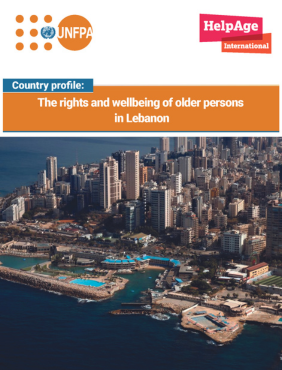
The rights and wellbeing of older persons in Lebanon
These country profiles map the situation of older persons in seven countries in the Arab region: Kuwait, Algeria, Lebanon, Morocco, Qatar, Syria, and the UAE. The profiles were developed by HelpAge International with support from the UNFPA Arab States Regional Office.
They shed light on the situation of older women and men in relation to income, health, education, autonomy, and safety. Additionally, they highlight how national systems and strategies address the needs and rights of aging people in these areas.
The aim of these country profiles is to help monitor the progress achieved towards the inclusion of older persons in the Sustainable Development Goals. They also aim to identify opportunities to strengthen national strategies and data.
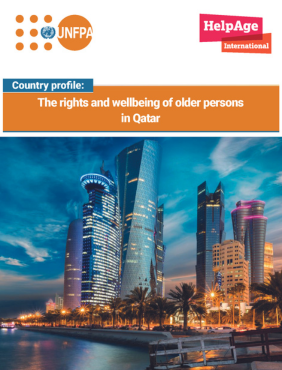
The rights and wellbeing of older persons in Qatar
These country profiles map the situation of older persons in seven countries in the Arab region: Kuwait, Algeria, Lebanon, Morocco, Qatar, Syria, and the UAE. The profiles were developed by HelpAge International with support from the UNFPA Arab States Regional Office.
They shed light on the situation of older women and men in relation to income, health, education, autonomy, and safety. Additionally, they highlight how national systems and strategies address the needs and rights of aging people in these areas.
The aim of these country profiles is to help monitor the progress achieved towards the inclusion of older persons in the Sustainable Development Goals. They also aim to identify opportunities to strengthen national strategies and data.
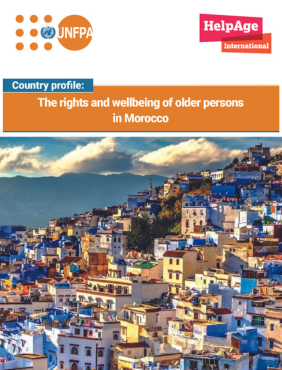
The rights and wellbeing of older persons in Morocco
These country profiles map the situation of older persons in seven countries in the Arab region: Kuwait, Algeria, Lebanon, Morocco, Qatar, Syria, and the UAE. The profiles were developed by HelpAge International with support from the UNFPA Arab States Regional Office.
They shed light on the situation of older women and men in relation to income, health, education, autonomy, and safety. Additionally, they highlight how national systems and strategies address the needs and rights of aging people in these areas.
The aim of these country profiles is to help monitor the progress achieved towards the inclusion of older persons in the Sustainable Development Goals. They also aim to identify opportunities to strengthen national strategies and data.
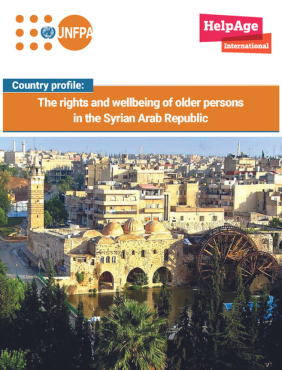
The rights and wellbeing of older persons in Syria
These country profiles map the situation of older persons in seven countries in the Arab region: Kuwait, Algeria, Lebanon, Morocco, Qatar, Syria, and the UAE. The profiles were developed by HelpAge International with support from the UNFPA Arab States Regional Office.
They shed light on the situation of older women and men in relation to income, health, education, autonomy, and safety. Additionally, they highlight how national systems and strategies address the needs and rights of aging people in these areas.
The aim of these country profiles is to help monitor the progress achieved towards the inclusion of older persons in the Sustainable Development Goals. They also aim to identify opportunities to strengthen national strategies and data.
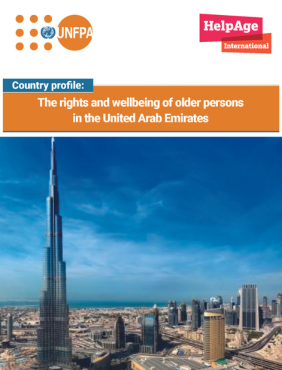
The rights and wellbeing of older persons in the United Arab Emirates
These country profiles map the situation of older persons in seven countries in the Arab region: Kuwait, Algeria, Lebanon, Morocco, Qatar, Syria, and the UAE. The profiles were developed by HelpAge International with support from the UNFPA Arab States Regional Office.
They shed light on the situation of older women and men in relation to income, health, education, autonomy, and safety. Additionally, they highlight how national systems and strategies address the needs and rights of aging people in these areas.
The aim of these country profiles is to help monitor the progress achieved towards the inclusion of older persons in the Sustainable Development Goals. They also aim to identify opportunities to strengthen national strategies and data.
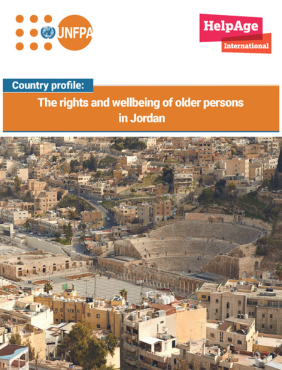
The rights and wellbeing of older persons in Jordan
These country profiles map the situation of older persons in seven countries in the Arab region: Kuwait, Algeria, Lebanon, Morocco, Qatar, Syria, and the UAE. The profiles were developed by HelpAge International with support from the UNFPA Arab States Regional Office.
They shed light on the situation of older women and men in relation to income, health, education, autonomy, and safety. Additionally, they highlight how national systems and strategies address the needs and rights of aging people in these areas.
The aim of these country profiles is to help monitor the progress achieved towards the inclusion of older persons in the Sustainable Development Goals. They also aim to identify opportunities to strengthen national strategies and data.
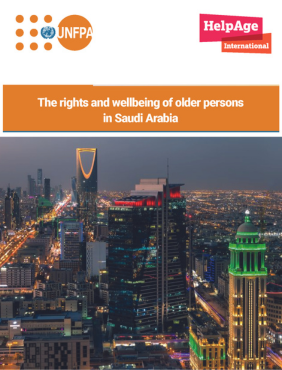
The rights and wellbeing of older persons in Saudi Arabia
These country profiles map the situation of older persons in seven countries in the Arab region: Kuwait, Algeria, Lebanon, Morocco, Qatar, Syria, and the UAE. The profiles were developed by HelpAge International with support from the UNFPA Arab States Regional Office.
They shed light on the situation of older women and men in relation to income, health, education, autonomy, and safety. Additionally, they highlight how national systems and strategies address the needs and rights of aging people in these areas.
The aim of these country profiles is to help monitor the progress achieved towards the inclusion of older persons in the Sustainable Development Goals. They also aim to identify opportunities to strengthen national strategies and data.
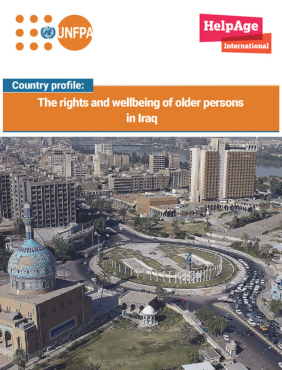
The rights and wellbeing of older persons in Iraq
These country profiles map the situation of older persons in seven countries in the Arab region: Kuwait, Algeria, Lebanon, Morocco, Qatar, Syria, and the UAE. The profiles were developed by HelpAge International with support from the UNFPA Arab States Regional Office.
They shed light on the situation of older women and men in relation to income, health, education, autonomy, and safety. Additionally, they highlight how national systems and strategies address the needs and rights of aging people in these areas.
The aim of these country profiles is to help monitor the progress achieved towards the inclusion of older persons in the Sustainable Development Goals. They also aim to identify opportunities to strengthen national strategies and data.
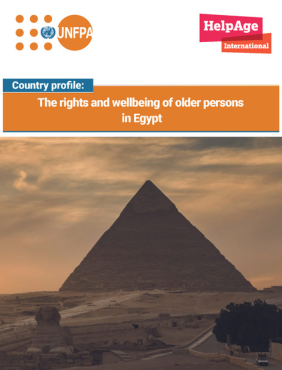
The rights and wellbeing of older persons in Egypt
These country profiles map the situation of older persons in seven countries in the Arab region: Kuwait, Algeria, Lebanon, Morocco, Qatar, Syria, and the UAE. The profiles were developed by HelpAge International with support from the UNFPA Arab States Regional Office.
They shed light on the situation of older women and men in relation to income, health, education, autonomy, and safety. Additionally, they highlight how national systems and strategies address the needs and rights of aging people in these areas.
The aim of these country profiles is to help monitor the progress achieved towards the inclusion of older persons in the Sustainable Development Goals. They also aim to identify opportunities to strengthen national strategies and data.
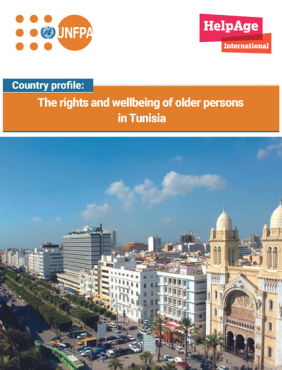
The rights and wellbeing of older persons in Tunisia
These country profiles map the situation of older persons in seven countries in the Arab region: Kuwait, Algeria, Lebanon, Morocco, Qatar, Syria, and the UAE. The profiles were developed by HelpAge International with support from the UNFPA Arab States Regional Office.
They shed light on the situation of older women and men in relation to income, health, education, autonomy, and safety. Additionally, they highlight how national systems and strategies address the needs and rights of aging people in these areas.
The aim of these country profiles is to help monitor the progress achieved towards the inclusion of older persons in the Sustainable Development Goals. They also aim to identify opportunities to strengthen national strategies and data.